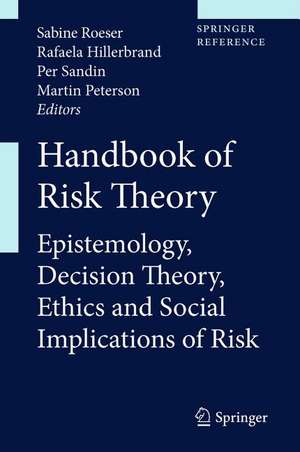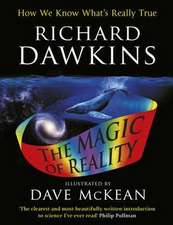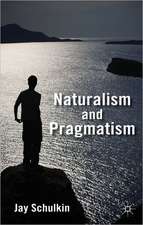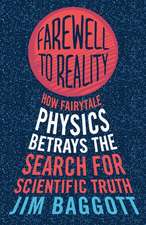Handbook of Risk Theory: Epistemology, Decision Theory, Ethics, and Social Implications of Risk
Sabine Roeser Editat de Rafaela Hillerbrand, Per Sandin, Martin Petersonen Limba Engleză Hardback – 17 ian 2012
This handbook provides for an overview into key topics in a major new field of research. It addresses a wide range of topics, ranging from decision theory, risk perception to ethics and social implications of risk, and it also addresses specific case studies. It aims to promote communication and information among all those who are interested in theoetical issues concerning risk and uncertainty.
This handbook brings together internationally leading philosophers and scholars from other disciplines who work on risk theory. The contributions are accessibly written and highly relevant to issues that are studied by risk scholars. We hope that the Handbook of Risk Theory will be a helpful starting point for all risk scholars who are interested in broadening and deepening their current perspectives.
Preț: 3897.72 lei
Preț vechi: 5128.58 lei
-24% Nou
746.06€ • 810.66$ • 627.10£
Carte tipărită la comandă
Livrare economică 16-22 aprilie
Specificații
ISBN-10: 9400714327
Pagini: 1164
Ilustrații: XL, 1187 p. In 2 volumes, not available separately.
Dimensiuni: 155 x 235 x 76 mm
Greutate: 1.93 kg
Ediția:2012
Editura: SPRINGER NETHERLANDS
Colecția Springer
Locul publicării:Dordrecht, Netherlands
Public țintă
ResearchCuprins
1 Introduction to Risk Theory by Sabine Roeser, Rafaela Hillerbrand, Per Sandin, Martin Peterson
Part 1: General Issues in Risk Theory: 2 A Panorama of the Philosophy of Risk by Sven Ove Hansson. 3 The Concepts of Risk and Safety by Niklas Möller. 4 Levels of Uncertainty by Hauke Riesch.
Part 2 Specific Risks: 5 The Economics of Risk: A (Partial) Survey by Louis Eeckhoudt, Henri Louberge. - 6 Interpretation of Forensic Evidence by Reinoud D. Stoel , Marjan Sjerps. - 7 Risks and Scientific Responsibilities in Nanotechnology by John Weckert. - 8 Risk and Risk-Benefit Evaluations in Biomedical Research by Annette Rid. - 9 Understanding and Governing Public Health Risks by Modeling by Erika Mansnerus. - 10 Management of the Risks of Transport by John Adams. - 11 Risk and Spatial Planning by Claudia Basta. - 12 Intergenerational Risks of Nuclear Energy by Behnam Taebi. 13 Climate Change as Risk? by Rafaela Hillerbrand - 14 Earthquakes and Volcanoes: Risk from Geophysical Hazards by Amy Donovan.
Part 3 Decision Theory and Risk: 15 A Rational Approach to Risk? Bayesian Decision Theory by Claus Beisbart. - 16 A Philosophical Assessment of Decision Theory by Karsten Klint Jensen. - 17 The Mismeasure of Risk by Peter R. Taylor. - 18 Unreliable Probabilities, Paradoxes, and Epistemic Risks by Nils-Eric Sahlin. - 19 Paradoxes of Rational Choice Theory by Till Gruene-Yanoff. - 20 Multi-Attribute Approaches to Risk by Paul Weirich. - 21 Real-Life Decisions and Decision Theory by John R. Welch. - 22 Social Influences on Risk Attitudes: Applications in Economics by Stefan T. Trautmann, Ferdinand M. Vieider.
Part 4 Risk Perception: 23 Risk Intelligence by Dylan Evans. 24 Risk Communication in Health by Nicolai Bodemer, Wolfgang Gaissmaier. - 25 Risk Perception and Societal Response by Lennart Sjöberg. - 26 The Role of Feelings in Perceived Risk by Melissa L. Finucane. -27 Emotions, Warnings, and the Ethics of Risk Communication by Ross Buck, Rebecca Ferrer. - 28 Cultural Cognition as a Conception of the Cultural Theory of Risk by Dan M. Kahan. - 29 Tools for Risk Communication by Britt-Marie Drottz-Sjöberg.
Part 5 Risk Ethics: 30 Ethics and Risk by Douglas MacLean. 31 Toward a Pre-Market Approach to Risk Assessment to Protect Children by Carl F. Cranor. -32 Moral Emotions as Guide to Acceptable Risk by Sabine Roeser. -33 Risk and Virtue Ethics by Allison Ross, Nafsika Athanassoulis. -34 Risk and Trust by Philip J. Nickel , Krist Vaesen. -35 Risk and Responsibility by Ibo van de Poel, Jessica Nihlén Fahlquist. -36 What Is a Fair Distribution of Risk? by Madeleine Hayenhjelm - 37 Intergenerational Risks by Lauren Hartzell-Nichols. -38 The Precautionary Principle by Marko Ahteensuu, Per Sandin. - 39 The Capability Approach in Risk Analysis by Colleen Murphy, Paolo Gardoni. -
Part 6 Risk in Society: 40 Sociology of Risk by Rolf Lidskog, Göran Sundqvist. - 41 Risk and Gender - Dare Devils and Eco-Angels by Misse Wester. - 42 Risk and Soft Impacts by Tsjalling Swierstra, Hedwig te Molder. - 43 Risk and Technology Assessment by Rinie van Est , Bart Walhout, Frans Brom. - 44 Risk Governance by Marijke A. Hermans , Tessa Fox, Marjolein B. A. van Asselt. - 45 EU Risk Regulation and the Uncertainty Challenge by Marjolein B. A. van Assel , Ellen Vos. - 46 Risk Management in Technocracy by Val Dusek.
Recenzii
“The editors have managed to compile an excellent handbook with contributions by leading scholars in risk theory. Although aimed at experts with a scientific background in risk, many of the book chapters would not be misplaced in (post)graduate courses on risk theory. In addition to the content, the book is carefully edited, with a brief table of content and list of references for each of the chapters, making the chapters also easily accessible on an individual basis.” (Neelke Doorn, Science and Engineering Ethics, April, 2012)
“The Handbook of Risk Theory takes it to the big city, right downtown, and explicates it from the expansive perspectives of leading academics and theorists from a wide range of disciplines. This anthology attempts, admirably, to capture the boundlessness of risk—like trying to catch lightning in a bottle—through the lens of risk theory. … It is … a magnum opus in the field of risk theory. Once you’ve read through the book’s 1187 pages, you’ll certainly know ‘risk’ well before you see it.” (Outward Bound International Journal, 2012)
Notă biografică
Sabine Roeser is Professor of Political Philosophy and Ethics at Twente University (Socrates Chair, part-time), Associate Professor of Ethics at TU Delft, and managing director of the 3TU.Centre for Ethics and Technology. She has been trained in fine arts, philosophy and political science, with a PhD in ethical theory. She has obtained various prestigious research grants for her innovative research on risk and moral emotions. She currently leads a research group on ‘Moral Emotions and Risk Politics’. She is regularly interviewed for popular media in the Netherlands. She has organized many international conferences. Roeser has given more than 100 presentations at international conferences and other academic events. Roeser has published numerous articles in e.g. The Journal of Value Inquiry, The Journal of Risk Research and Science and Engineering Ethics. Roeser has (co-)edited the following books: Emotions and Risky Technologies, Springer (2010), Thomas Reid on Ethics, Palgrave Macmillan (2010), The Ethics ofTechnological Risk, Earthscan (2009), and Basic Belief and Basic Knowledge: Papers inEpistemology, Ontos (2005). She is author of the monograph Moral Emotions and Intuitions, Palgrave Macmillan(2011).Personal website: www.tbm.tudelft.nl/sroeser
Rafaela Hillerbrand is head of the research group Ethics for Energy Technology. Before joining HumTec Rafaela Hillerbrand was working as a senior research fellow at the University of Oxford on epistemological and ethical problems for decions under risk and uncertainty. Hillerbrand's research traverse epistemological problems related to the interpretations of probabilities, quantitative modelling, and foundational aspect of statistical mechanics. Hillerbrand holds a PhD in theoretical physics as well as a PhD in philosophy. For her book on the ethics of technology, which covers aspects of applied ethics just as well as genuine theoretical normative ethics, she received the Lilli-Bechmann-Rahn-Preis of the University Erlangen Nürnberg in 2005. Her PhD in physics was awarded the Ingrid-zu-Solms Naturwissenschaftspreis 2008. She is an elected member of the German Young Academy of Sciences (Junge Akademie).
Per Sandin received his PhD from the Royal Institute of Technology, Stockholm, in 2005 on a thesis entitled Better Safe than Sorry: Applying Philosophical Methods to the Debate on Risk and the Precautionary Principle. He has mainly worked in applied ethics and topics on risk and policy, and his work has appeared in journals such as Human and Ecological Risk Assessment, Philosophia, Journal of Risk Research and Ethical Theory and Moral Practice. Between 1999 and 2005 he was editorial assistant of Theoria and associate editor for the same journal between 2005 and 2007. In the spring of 2009 he is a Visiting Fellow in the Centre for Applied Philosophy and Public Ethics (CAPPE) in Canberra, Australia.Personal website: www.infra.kth.se/~sandin
Martin Peterson is author of two books, An Introduction to Decision Theory (Cambridge University Press, 2009) and Non-Bayesian Decision Theory (Springer, 2008). He has published about 40 articles in peer-reviewed journals such as Risk Analysis, the Journal of Philosophy, and the Journal of Risk Research. Peterson received his PhD in philosophy in 2003 from the Royal Institute of Technology, Stockholm. He is currently an associate professor of philosophy at Eindhoven University of Technology. Between 2005 and 2008 he worked for three years at the University of Cambridge, where he was a Research Fellow in the Department of History and Philosophy of Science and Director of Studies in Philosophy at St Edmund's College. He has also held teaching and research positions at the Royal Institute of Technology and at Lulea University of Technology.
Personal website: http://www.martinpeterson.org
Caracteristici
Clarifying overview of the different decision theories for Risks
Describes the concept of Risk
Defines the ethical boundaries of Risk
Discusses the influence of Risk on society
Accessible contributions, readable for everyone with a scientific background in Risk.
Descriere
Risk has become one of the main topics in fields as diverse as engineering, medicine and economics, and it is also studied by social scientists, psychologists and legal scholars. But the topic of risk also leads to more fundamental questions such as: What is risk? What can decision theory contribute to the analysis of risk? What does the human perception of risk mean for society? How should we judge whether a risk is morally acceptable or not? Over the last couple of decades questions like these have attracted interest from philosophers and other scholars into risk theory.
This handbook provides for an overview into key topics in a major new field of research. It addresses a wide range of topics, ranging from decision theory, risk perception to ethics and social implications of risk, and it also addresses specific case studies. It aims to promote communication and information among all those who are interested in theoetical issues concerning risk and uncertainty.
This handbook brings together internationally leading philosophers and scholars from other disciplines who work on risk theory. The contributions are accessibly written and highly relevant to issues that are studied by risk scholars. We hope that the Handbook of Risk Theory will be a helpful starting point for all risk scholars who are interested in broadening and deepening their current perspectives.













